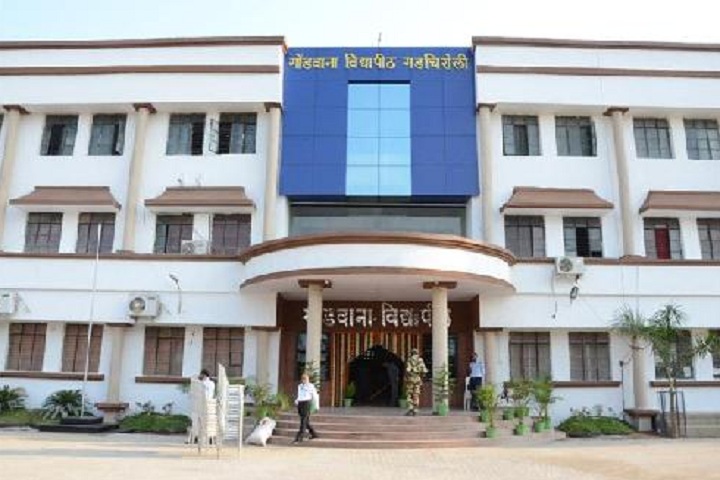
Banking Law Course Details - Fees, Subjects, Syllabus, Duration, Eligibility, Career Scope
Degrees offered: L.L.M, P.G.D, Diploma, B.A. L.L.B, B.B.A. L.L.B
What is Banking Law
Banking Law is a specialisation of law that provides a detailed understanding of the legal framework of the banking industry. It covers the legal aspects of banking, such as banking regulations, investment policies, and other domestic and international perspectives. Some of the main topics that are covered in the Banking law course are banking contracts, financial privacy, regulatory compliance, consumer protection laws and anti-money laundering regulations.
The eligibility details of Banking Law depend on the provider and the level of education. Candidates can check the official website of the provider or review the programme brochure released by the institute to know the eligibility details. Generally, the admission procedure of Banking Law consists of entrance examinations. CLAT UG is a popular entrance examination for UG courses, similarly, for PG courses, students are advised to appear for CLAT PG.
It details the legal implications of electronic banking, digital currencies and branch of law courses that guide students in facing legal challenges such as bankruptcy, loan agreements, and insolvency. Banking law provides students with the relevant skills and knowledge that are necessary to navigate the complex legal issues of the banking industry, ensuring compliance and effective risk management.
Banking Law- Important Dates and Events
- 7th December 2024- CLAT result out
- 9th December 2024-CLAT 2025 Counselling Registrations Started
Banking Law Course Details- Highlights
| Particulars | Values |
|---|---|
Branch Name | Banking Law |
Banking Law Degrees | LLB, Integrated LLB, LLM |
Banking Law Course Duration | LLB (3 years) Integrated LLB (5 years) LLM (2 years) |
Banking Law Eligibility Criteria | LLB (Graduate with 50 per cent of aggregate marks from a recognised board) Integrated LLB (10+2 with 50 per cent of aggregate marks from a recognised board) LLM (Bachelor of Law Degree with 50 per cent of aggregate marks) |
Banking Law Admission Process | LLB (Entrance exams like CLAT, TS LAWCET, AILET, LSAT) Integrated LLB (Entrance exams like CLAT, LSAT, AILET) LLM (Entrance exams like AILET, IPU CET, BHU UET) |
Banking Law Entrance examinations | CLAT, AILET, DU LLB |
Banking Law Course Fees | Rs. 15,000 to Rs. 21.19 Lakhs |
Banking Law Top Colleges | Raffles University, Neemrana, NLU Kochi, RTMNU Nagpur, Saurashtra University, Rajkot, ICFAI Law School, Hyderabad |
Banking Law Career Options | Compliance Officer, Legal Analyst, Tax Consultant |
Banking Law Average Salary | Rs. 7 LPA |
Banking Law Top Recruiters | AZB & Partners, Luthra and Luthra Law Offices India, Khaitan & Co, Bharucha & Partners, Kochhar & Co, Phoenix Legal |
What is a Banking Law Course?
Banking Law is a specialisation of law that deals with the legal rights and framework of the banking industry. Students who have a background in commerce and are interested in becoming a lawyer. Some of the important details specific to Banking Law are listed below.
Banking Law Courses- Banking Law courses are offered at various levels such as undergraduate, postgraduate, and doctoral levels. However, students can choose Banking Law as a specialisation only at postgraduate levels, Some of the important degrees are mentioned below.
- UG Level- Some of the popular degrees offered at the undergraduate level are LLB/BA LLB/BBA LLB.
- PG Level- At the postgraduate level, students can apply for an LLM with Banking Law as a specialisation.
Banking Law Subjects- The Banking Law syllabus focuses on the key aspects and concepts. At the undergraduate level, students will study subjects such as the Indian Banking Industry, Employment of Funds, and Banking and Customer Relationships.
Top Private Banking Law Colleges in India
Banking Law courses are offered by a number of private universities and colleges in India. Admission to the Banking Law course is offered based on previous academic achievements and the results of the entrance examinations. The table below lists some of India's best private Banking Law colleges.
| Colleges | Fees |
|---|---|
- | |
- | |
Rs. 2.10 Lakhs | |
- | |
- | |
Maharishi Law School, Maharishi University of Information Technology, Noida | Rs. 1.60 Lakhs |
- |
Top Government Business Law Colleges in India
In India, there are many government universities and colleges that offer Business Law courses. Prior academic achievements and entrance examination scores are used to determine admission for Business Law courses. India's best government Business Law colleges are listed in the table below.
Eligibility Criteria (UG & PG) of Banking Law
Candidates wishing to apply for admission to Banking Law courses at undergraduate and postgraduate courses are required to meet the eligibility criteria which can be found on the official website of the institute or the programme brochure. For a UG course, the candidates are required to have completed their 10+2 level of education with a valid aggregate score as specified by the desired institute. For PG courses, they must have completed a Bachelor's degree in the field of Law while scoring the minimum aggregate percentage. Mentioned below are the eligibility requirements for UG and PG courses.
Eligibility Criteria for UG Courses
The candidates must meet the eligibility criteria of the course before applying for admission. For a UG course, the candidates are required to have completed their 10+2 level of education with a valid aggregate score as specified by the desired institute. They must also carefully look at the minimum and maximum age limit required for the course.
- Aspiring candidates who want to pursue integrated undergraduate law courses need to complete their 10+2 and students who want to pursue an LLB degree for three years must complete their undergraduate degree programme.
- There is no specified age limit for the course.
- Top Law colleges offer admission to undergraduate and postgraduate courses based on the result of the entrance examinations.
Top Entrance Exams for UG Courses
In the table below, we have discussed the popular entrance examinations required for undergraduate courses in the field of Banking Law. Candidates can also check the official website of the institute to know the course details.
| Exam Name | Conducting Body | Exam Schedule |
|---|---|---|
| CLAT | Consortium of NLUs | CLAT Exam Date |
| LSAT | Pearson VUE | LSAT Exam Schedule |
| MH CET Law | Directorate of Higher Education Mumbai | - |
Eligibility Criteria for PG Courses
Similar to the undergraduate courses, there are certain eligibility requirements that the students must meet in order to qualify for admission to the postgraduate courses in the field of Banking Law. Mentioned below are the general eligibility requirements for the Banking Law course.
- The candidate must have a bachelor’s degree from a recognised university or institution. PGD in law can be pursued only by LLB graduates.
- Candidates must attend the counselling process and be selected according to their marks in the entrance exam or bachelor’s degree.
- Admission to various postgraduate degree programmes of law courses differs from college to college.
Top Entrance Exams for PG Courses
Similarly, for admission to the PG level courses, candidates should appear for relevant entrance examinations. In the table below, we have discussed the top entrance examination for admissions to the PG courses in Banking Law.
| Exam Name | Conducting Body | Exam Schedule |
|---|---|---|
| CLAT PG | Consortium of NLUs | CLAT PG Exam Date |
College Predictors VIEW ALL
Scope of Banking Law in India and Abroad
The Indian Banking Sector is growing rapidly and is one of the strongest and most regulated economies in the world. Banking law opens vast opportunities for the people. When demonetisation was executed in India, it led to a big crunch in liquidity (money readily available to use). But this will result in a huge demand for the services of lawyers as now every transaction that will take place will require the guidance and supervision of senior lawyers.
Course Fees Banking Law
| Minimum Fees | Maximum Fees | |||
|---|---|---|---|---|
| Private | Government | Private | Government | |
| UG | ||||
| PG | ||||
| DIPLOMA | ||||
Course Subjects
Banking Law Syllabus for UG and PG courses
The syllabus for an undergraduate degree in Banking Law in India covers a wide range of topics, such as the Banking Regulation Act, and Types of Account Holders. The course curriculum of undergraduate and postgraduate level for Banking Law is discussed in the section below.
Banking Law Syllabus for UG Course
Banking Law is not offered as a specialisation at the undergraduate level but some courses are offered that are related to Banking Law. In the table below we have mentioned the topics that are covered in the Banking Law syllabus at the undergraduate level of Bundelkhand University, Jhansi.
Unit 1 | |
Banking Regulation Act 1949 | Evolution of banking |
Indian banking system | RBI Industrial Banks |
NABARD | Co-operative Banks |
Defining banker, customers, general & special relationship of banker & customers | Clayton’s rule |
Insurance of bank deposits | NR accounts |
Unit 2 | |
Types of Account Holders | Non Trading Institutions |
Services to customers | Teller system, credit cards, mutual funds |
Unit 3 | |
Cheque | Payment of Cheques |
Dishonour of cheque | Duties & protection no collecting banker |
Employment of bank funds | Negotiable instruments |
Banking Law Syllabus for PG course
The Banking Law course at the postgraduate level provides a detailed understanding of bank policies and law. The Banking Law course is taught as a topic in the postgraduate syllabus. Below, we have mentioned the Banking Law topics at the postgraduate level courses at Sikkim University.
Unit I | Law Relating to Banking Companies in India and Social Control over Banking |
Unit II | Deposit Insurance |
Unit III | Relationship between Banker and Customer |
Unit IV | Recent Trends of Banking System in India |
Specialisation or Similar Ones
Banking law specialisation generally includes the areas of law that are relevant to banking operations, transactions, and the legal aspects. Below we have mentioned the specialisations of Banking Law.
- Banking Regulations and Compliance
- Corporate Banking and Finance
- Banking Litigation and Dispute Resolution
- International Banking and Finance
- Fintech and Digital Banking
- Banking and Insurance Laws
Below, we have mentioned some of the major degree programmes in Banking Law and related courses:
Careers in Banking Law
Graduates can apply for various job profiles in fields similar to or related to law. The average salary depends on the skills and experience of the candidate. In the table below, we have discussed the popular job profiles along with their job descriptions.
| Job Profiles | Job Descriptions |
|---|---|
Banking Lawyer | Banking lawyers offer legal services to individuals, business organisations, and financial institutions. Banking lawyers manage a wide variety of legal matters, such as compliance, loans, regulatory issues, debt recovery, mergers and acquisitions, agreements, and dispute resolution. They ensure all the banking operations follow the legal requirements, protecting the interests of both banks and customers. |
Compliance Managers help in managing the risks and avoid court problems by doing proper paperwork and according to state and federal laws. They also develop company policies, track compliance and perform audits. They have to keep a check on the new regulations and rules that come up in the laws to help the business be up-to-date. | |
Legal Advisors conduct legal research and gather legal information regarding the laws. They pay attention to the contracts, leases, licences, policies and other documents like assembling the documents and proofreading. They record the daily documents on electronic devices and also physically file them. | |
Tax Consultants prepare logs for tax payments and track the tax returns. They keep the quarterly and yearly tax reports up-to-date and keep on updating the taxes paid by the company. They have to prepare the papers required during the tax payments and return strategies for saving tax and how to increase these profits. |
Upcoming trends
Banking sector is growing rapidly and many trends are also evolving in the banking industry of India. With increasing technological advancements, like every other course, banking law courses are also adapting new trends and topics.
Digital Banking and Fintech: Digital banking platforms are nowadays evolving rapidly as technological innovations are occurring. Banking law can provide compliance on digital payments, blockchain technology, data protection, and cybersecurity.
Risk Management: Risk management is essential for any bank for maintaining stability. Risk Management may emphasise various topics like risk assessment, corporate governance norms, regulatory compliance, and internal control mechanisms.
Sustainable Banking and Environmental Regulations: Sustainable Banking and Environmental Regulations is essential because of the increasing emphasis on sustainability, this also covers the legal aspects of sustainable banking practices, including environmental regulations, green financing, and social responsibility in banking day-to-day operations.
Job Profiles and Top Recruiters
Banking Law graduates are recruited by many legal firms, organisations and educational institutes. Below, we have mentioned the top legal firms that hire Banking Law graduates.
- AZB & Partners
- Luthra and Luthra Law Offices India
- Khaitan & Co.
- Bharucha & Partners
- Kochhar & Co.
- Phoenix Legal
Average Salary
The salary of the graduates after Banking Law may vary depending on the experience of the candidate, location of the company, job profile and skills of the candidate. In the table below, we have mentioned the salary of the careers that are mostly pursued by the Banking Law graduates.
| Job Profile | Average Salary |
|---|---|
| Banking Lawyer | Rs. 5.0 LPA |
Compliance Officer | Rs. 4.7 LPA |
Legal Analyst | Rs. 4.0 LPA |
Tax Consultant | Rs. 4.1 LPA |
Note: The salary mentioned here is only for reference point of view, the actual salary may vary depending on the company, location of the company, skills and job profile.
Required Skillset for Banking Law
There are certain skills that the candidate must have in order to perform well in the field of Banking Law. These skills are essential for both academic and professional careers of the candidates. The aspirants who want to pursue banking law as a career should have profound knowledge of the laws and should have fluency in oral and written communication.
- Research Skills
- Good Communication
- Decision-Making Skills
- Numerical Ability
- Analytical Thinking Skills
- Creativity Skills
Course Curriculum for Banking Law
The students in Banking law are taught that the banking and financial services industry is under the laws of India. Bankruptcy and its related laws from the point of view of creditors and how to deal with them. A survey of state law collection remedies and non-bankruptcy composition and liquidation schemes are seen along with the rights, obligations and procedures for bankruptcy law.
There are Banking law internships offered to the students which give them real-life experience in the field of financial services law. They work under the supervision of a professional. The subjects that are covered in the banking law course curriculum are:
- Banking Regulations
- Banking Contracts
- Payment Systems
- Consumer Protection in Banking
- Secured Transactions
- Anti-Money Laundering and Counter-Terrorist Financing
- International Banking Law
- Bankruptcy and Insolvency
- Corporate Governance and Ethics in Banking
Popular Banking Law Entrance Exams in India
Frequently Asked Questions (FAQs)
Question: What are some of the pre-requisite skills for Banking Law course?
Answer :
Some of the skills required for Banking Law are Research Skills, Communication Skills, Decision Making skills, Numerical ability, Banking Aptitude and Analytical Thinking skills.
Question: What are some of the top recruiters in the field of Banking Law?
Answer :
Some of the top recruiters hiring Banking Law graduates in India are AZB & Partners, Luthra and Luthra Law Offices India, Khaitan and Co., Kochhar & Co. and Phoenix Legal.
Question: What are some of the important topics taught in Banking Law?
Answer :
Some of the topics taught in Banking Law are Banking Regulation Act 1949, Indian Banking System, Insurance of Bank Deposits, Evolution of Banking
Question: What are the top entrance exams required for getting admission to UG or PG courses in the field of Banking Law?
Answer :
Some of the top entrance examinations in the field of Business Law are CLAT UG, AILET, LSAT, and CLAT PG.
Question: What is the average salary of Banking Law graduates?
Answer :
The salary depends on the experience, job location, skills and expertise of the candidate and job profile. The salary of a Corporate Lawyer is Rs. 5.9 LPA.
Question: What are the job profiles available for Banking Law graduates?
Answer :
There are many career options that the students can opt for after completing a course in Banking Law. Some of the popular career options include Banking Lawyer, Tax Consultant, Legal Analyst, Compliance Officer, Financial Consultant, Investment Advisor, Corporate Lawyer, and Investment Banker.
Question: Which are the courses available for banking law?
Answer :
There are 3 courses available for banking law. Diploma which can be done after 10+2 immediately for 1 year. Then comes a bachelor's course which is also done after 10+2 for 3-5 years depending on if it is integrated or not. And last the Master's course for 2 years.
Question: What are the fees of the colleges?
Answer :
The college fees vary from college to college. The private colleges would have higher fees of about Rs. 3-4 lakhs while the government colleges have fees up to Rs. 1 lakh.
Question: Which are the books they can refer for Banking Law course?
Answer :
The books the students can refer to are, Principles of banking law – Ross Cranston, Ellinger's Modern Banking Law, Value Added Tax Fraud – Marius-Christian Frunza, Banking Law and Regulation – Iris H. Y. Chiu and Joanna Wilson, Banking and Financial Institutions Law in a Nutshell – William Lovett
Question: Which are the top colleges offering banking law courses?
Answer :
The top colleges offering this course are, NLU Kolkata, Kolkata, School of Law, University of Petroleum and Energy Studies, Dehradun, ICFAI Law School, Hyderabad, ISBM – Indian School of Business Management and Administration, Hyderabad.





















